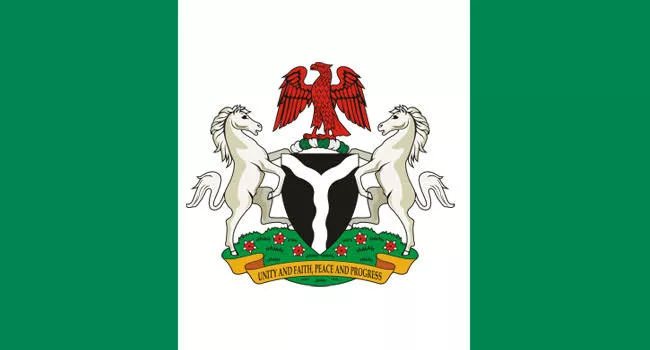The federal government has announced plans to scale up its social safety net, a controversial cash transfer programme designed to cushion the effects of current economic hardship and poverty across the country. The programme is targeting the poorest and most vulnerable households.
Speaking at the Oxford Global Think Tank Leadership Conference on Tuesday in Abuja, Minister of Finance and Coordinating Minister of the Economy, Wale Edun, acknowledged the economic challenges confronting Nigerians, including rising food and transport costs, but emphasised that measures were already in place to cushion the effects of the reforms.
Recall that the minister said in September this year that 8.5 million households had received N25,000 payments.
To alleviate poverty, each impoverished and vulnerable household is given N25,000 in three tranches. Last month, the administration said it had spent about N330 billion on the social safety net programmes between January and September 2025.
The amount of disbursement to the beneficiaries has been a subject of debate, with the labour union and many other stakeholders calling on the government to provide evidence of the actual beneficiaries.
The administration had set a target of reaching 15 million households nationwide, which is still within the realm of ambition.
Edun said while progress had been made in stabilising inflation and the exchange rate, more needed to be done to lift Nigerians out of poverty and ensure citizens feel the positive effects of ongoing economic reforms.
“There is an attempt to ensure that the pains of reform are immediately alleviated. That’s why there is a transparent, accountable, and robust system of providing direct payments to 15 million households,” Edun stated.
According to the minister, the government has established a transparent, accountable, and robust system for direct payments to the 15 million households nationwide.
He restated that the government has established a process that ensures transparency and accountability while enabling it to monitor disbursements in real time.
Responding to concerns that some communities had yet to benefit from the payments, the minister said data would soon be released showing the names of beneficiaries who had received the first, second, and third tranches.
Beyond the cash transfers, the minister disclosed that the government was also implementing a ward-based development programme to directly take resources, information, and funding to the 8,809 wards in Nigeria’s 774 local government areas.
“The initiative will empower economically active people at the ward level—supporting small businesses, cottage industries, and local entrepreneurs to boost production and create sustainable livelihoods,” he stated.
He further noted that the reforms aim to stabilise the economy and ensure that their benefits “reach down to the lowest levels of society.”
The former director general of the Securities and Exchange Commission (SEC) and founder of Oxford Global Think Tank, Ms Arunma Oteh, at the event called for urgent action to mobilise long-term capital, accelerate infrastructure development, and decentralise the management of Nigeria’s mineral resources to unlock sustainable growth.
Oteh, also a Vice President at the World Bank, said Nigeria’s economic potential can only be realised if the country creates an environment that attracts “reasonably priced, long-term, patient capital” for government and private sector development.
According to her, Nigeria’s infrastructure deficit remains a major barrier to growth. Citing data from China, she noted that the Asian country invested about 24 per cent of its GDP in infrastructure, compared to Nigeria’s 4–5 per cent. “If we want to bridge our infrastructure gap, we must increase that investment to at least 12 per cent of GDP,” she stated.
Oteh commended some recent government initiatives but stressed that the Central Bank and the Ministry of Finance must “scale up” their efforts to raise capital supporting small businesses and large-scale public works. “Small businesses need affordable financing, and the government needs to expand its capacity to invest in roads, power, and logistics to move goods to markets,” she said.
Beyond infrastructure, Oteh highlighted the importance of diversifying Nigeria’s economy through its mineral wealth, pointing out that the country possesses at least 40 commercially viable minerals that remain underexploited.
“Why are we not exporting these 40 minerals commercially?” she asked. “Why are minerals still on the exclusive legislative list? We should decentralise the sector so that each state can develop and benefit from its natural resources. That is how to expand our revenue base and create jobs.”
Oteh further revealed that the Oxford Global Project had chosen to produce a special report on “Reforming Africa’s Mineral Sector to Prosper Africa,” reflecting a growing global interest in the continent’s resource potential.
On leadership, Oteh said Nigeria’s transformation requires leaders with character, compassion, competence, and courage. She urged the next generation of Nigerian leaders to embody these values in public service and business.
“Our grandparents taught us that leadership is about values—doing the right thing even when it’s hard. If we have that kind of leadership, the next generation will take Nigeria to greater heights,” she said.
She concluded by urging collective action from both public and private sectors: “We all need to put our hands on deck—government, business, and citizens—to invest in our nation and create opportunities for everyone.”
Also, Sanusi Lamido Sanusi, a former governor of the Central Bank of Nigeria (CBN), said that the country’s current economic hardship is the cumulative consequence of failing to remove fuel subsidies more than a decade ago.
Sanusi, the current Emir of Kano, stressed that citizens’ failure to understand basic economic principles had led to misplaced expectations regarding the roles of government institutions such as the CBN and the Ministry of Finance.
He explained that the removal of fuel subsidy was not just an economic decision but a necessary correction to an unsustainable policy. “If you pay N65 per litre and suddenly begin to pay N160, of course, there will be hardship,” Sanusi said. “The duty of leadership is to recognise that there will be costs and to mitigate them—not to avoid reform entirely.”
According to him, Nigeria’s arrangement for years was not a subsidy but a “hedge,” which exposed the country to unlimited financial liability. “The government told 200 million Nigerians they would not pay more than a fixed amount per litre, no matter what happened to oil prices or exchange rates. The federal government paid the difference when oil went from $40 to $140. The government paid the difference when the naira depreciated from N155 to N300. That was not a subsidy; it was the worst form of derivative—an open-ended hedge,” he explained.
Sanusi said Nigeria eventually reached a point where it was borrowing money not just to pay subsidies but also to service the interest on those loans, a trajectory he described as “bankruptcy by policy.”
Reflecting on the events of 2012, he recalled that he had warned that delaying subsidy removal would impose far greater pain on Nigerians in the future. “If we had removed it then, inflation would have risen slightly, from 11 to about 13 per cent, and stabilised. Now we are facing inflation above 30 per cent. This is the cost of delay,” he said.
On the performance of the current central bank leadership, Sanusi commended the CBN Governor, Olayemi Cardoso, describing him as a competent and principled professional.
“The central bank’s role is not to create growth or employment but to provide stability and an environment conducive to growth—and I believe the current leadership has made progress in that regard,” he concluded.





